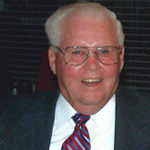The massive earthquake moved parts of the Japanese coastline 13 feet eastward, The New York Times reported. Actually, Japan pivoted, since the region closest to the quake's epicenter moved a greater distance than the regions farther from that point.
Buckle & pop
Here's how The Times described what happened: "That part of Asia, to the surprise of many who look at the geological map, sits on the North American tectonic plate, which wraps up and around the Pacific plate and extends a tentacle southward that part of Japan sits atop. The Pacific plate is moving about 3.5 inches a year in a west-northwest direction, and in that collision — what geologists call a subduction zone — the Pacific plate dives under the North American plate.
"Most of the time, the two tectonic plates are stuck together, and the North American plate is squeezed, much like a playing card held between the thumb and forefinger. As the fingers squeeze the card, it buckles upward until the card pops free.
"In the same way, the North American plate buckles, and the eastern part of Japan is slowly pushed to the west. But when the earthquake, which occurred offshore, released the tension, the land jumped back to the east."
The earthquake made Japan "wider than it was before," as Ross Stein of the U.S. Geological Survey described it.
Spinning faster
Not only that, but the quake also caused Earth's days to get shorter. Here's what happened: The movement of the tectonic plates shifted Earth's axis and caused the planet's mass to move closer to its center. And, just as a figure skater spins faster when she moves her arms closer to her body, Earth spins slightly faster when its mass is pushed closer to its middle.
The Times quoted NASA scientist Richard S. Gross, who calculated a day is about 1.8 millionth of a second shorter than it was last week.
Sign up for our weekly edition and get all our headlines in your inbox on Thursdays
Human impact
Both of these changes are so slight no one could notice them without the most precise scientific instruments. They don't make a difference in how anyone lives.
But, of course, the earthquake shifted the life plates and rocked the daily axis for hundreds of thousands, possibly millions, of people. Images of the catastrophe burned into our hearts and minds. And still, it's practically impossible to imagine life in the region closest to the epicenter—shaken by the quake, deluged by the tsunami, further threatened by nuclear disaster.
No doubt, everyone who reads these words can quote Scripture passages about the changelessness and transcendence of God, as well as how God's heart breaks for the broken, and the presence of God in desolate places.
While this is true, God beckons us to help enflesh the reality of those promises. And so we pray for the people of Japan, and we give so they can receive some measure of relief.














We seek to connect God’s story and God’s people around the world. To learn more about God’s story, click here.
Send comments and feedback to Eric Black, our editor. For comments to be published, please specify “letter to the editor.” Maximum length for publication is 300 words.